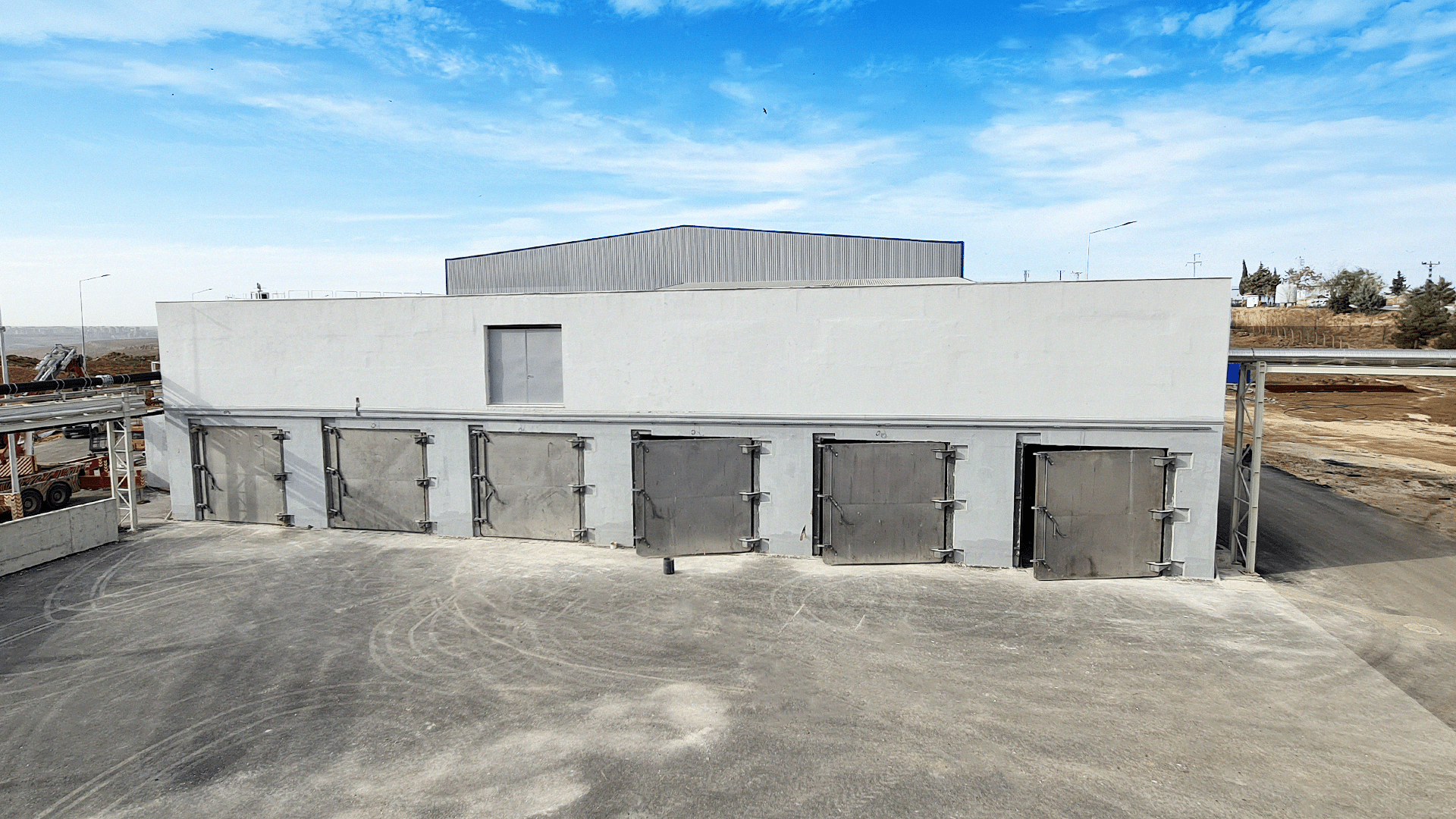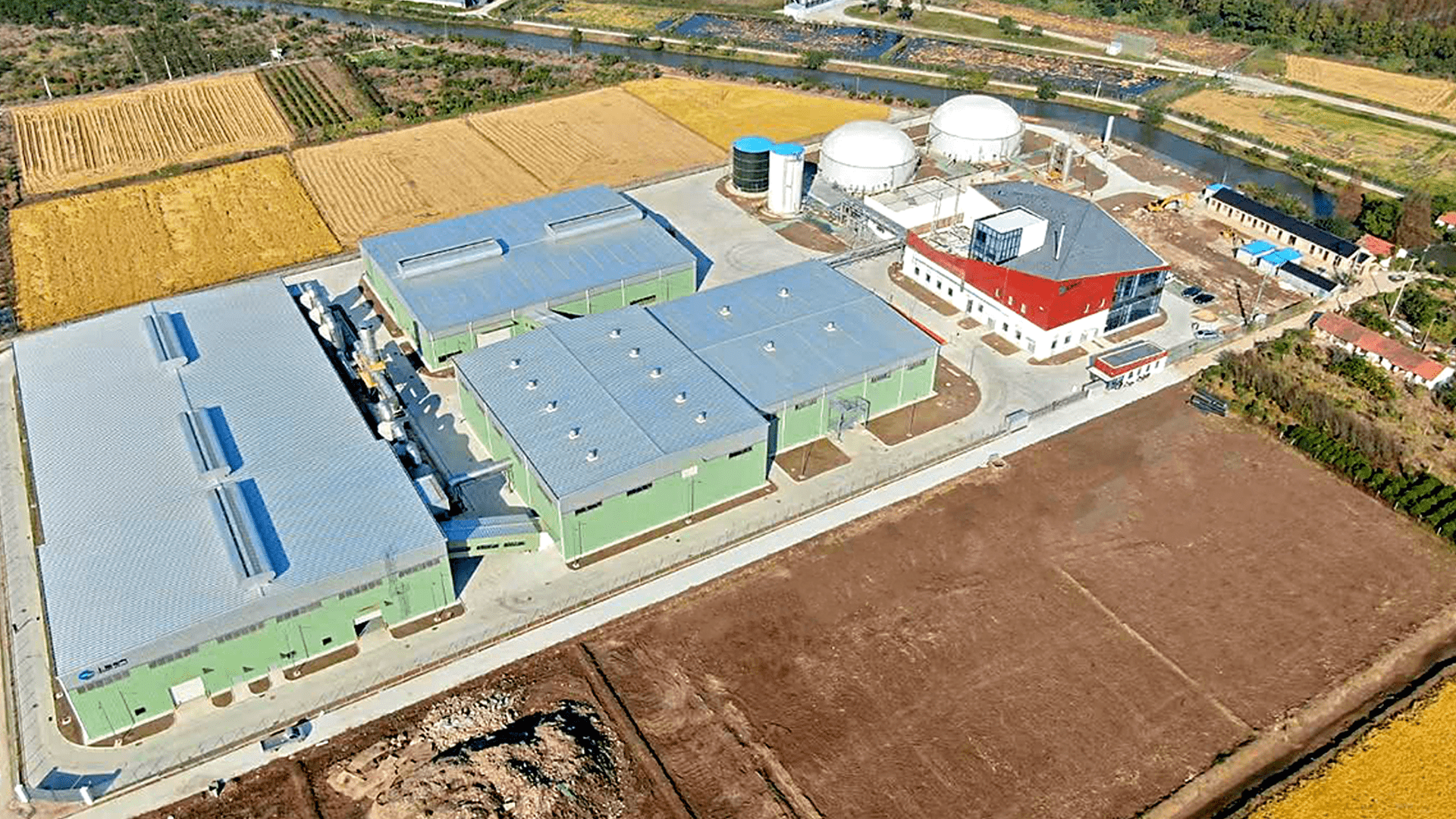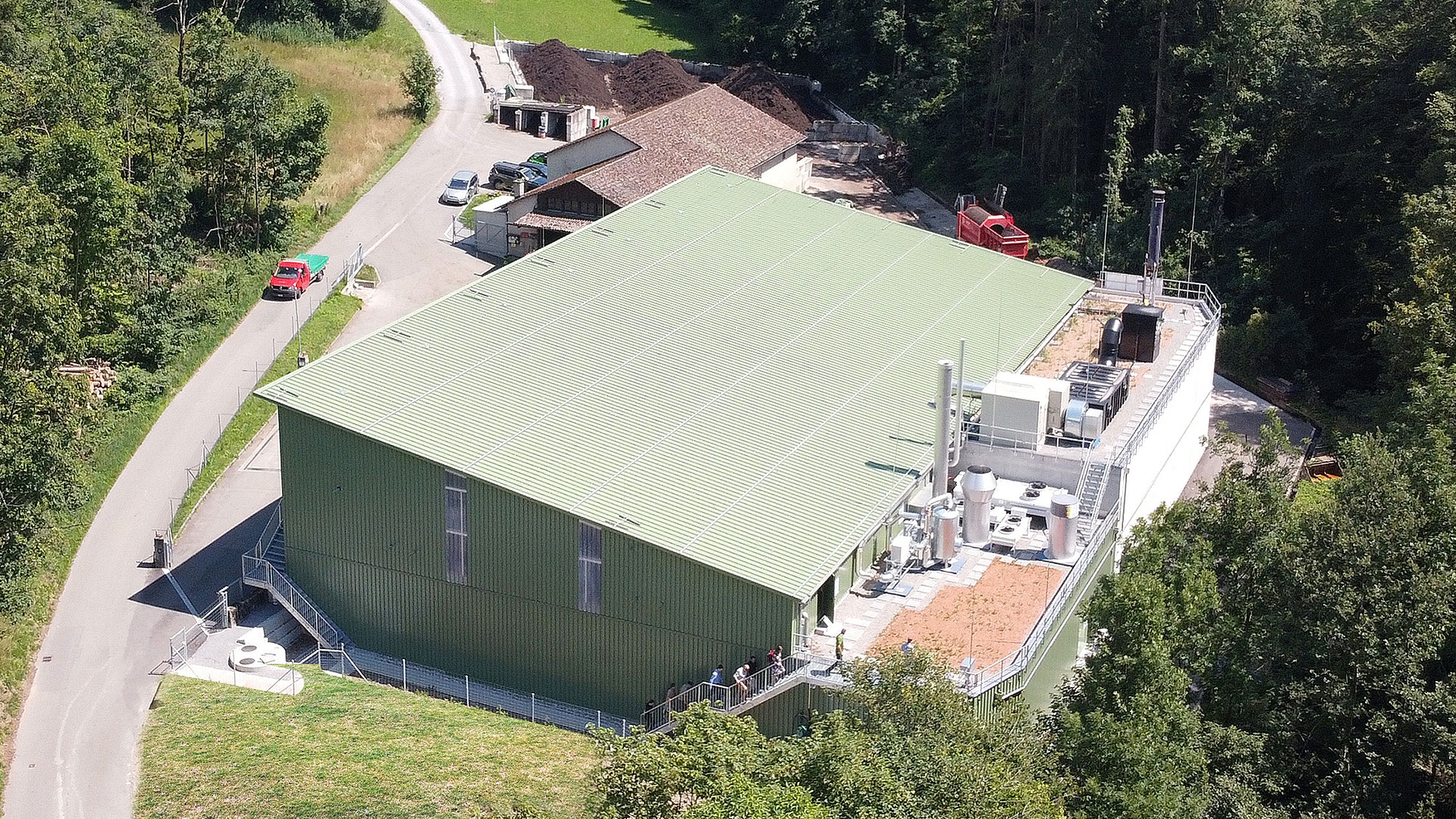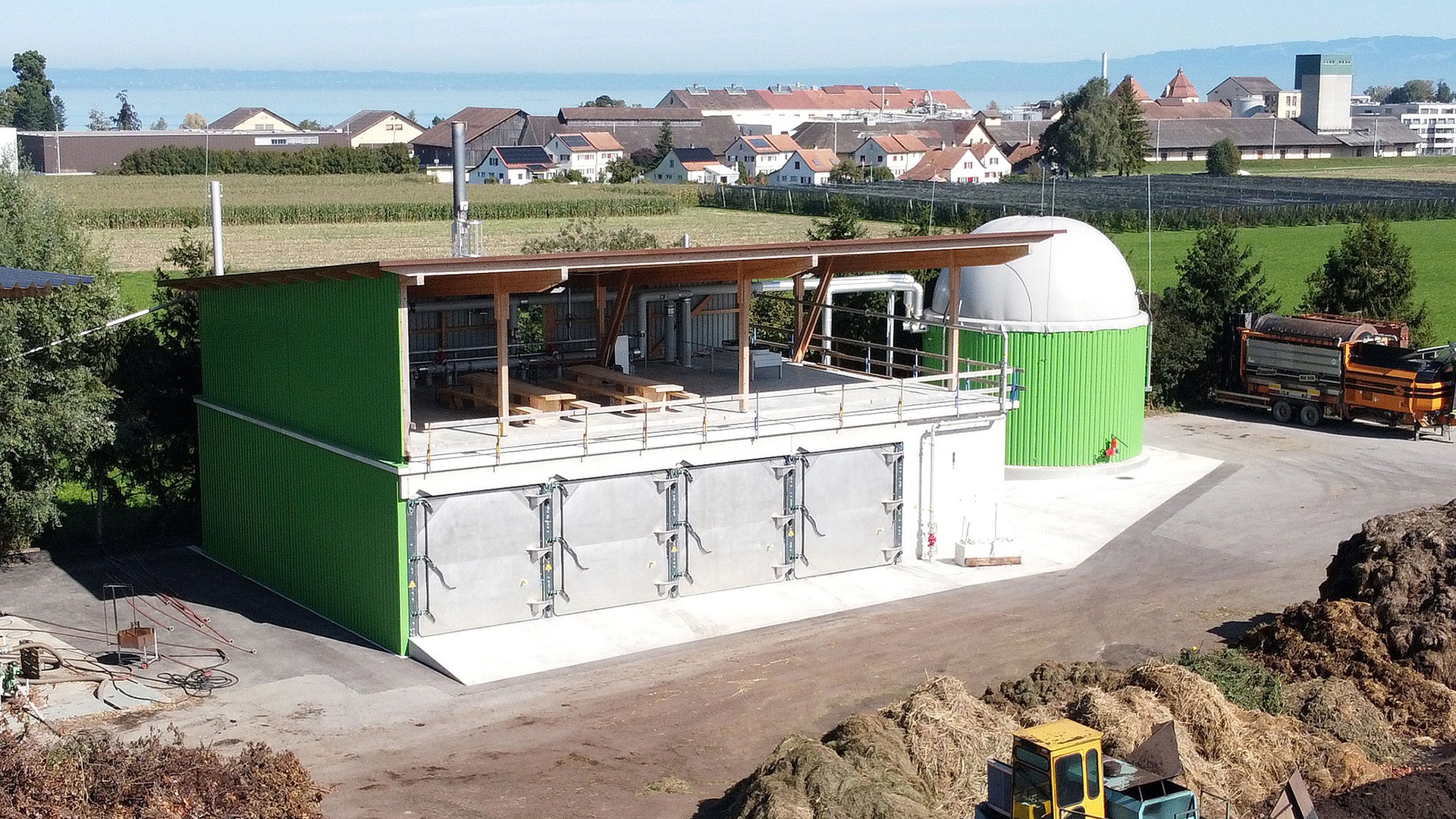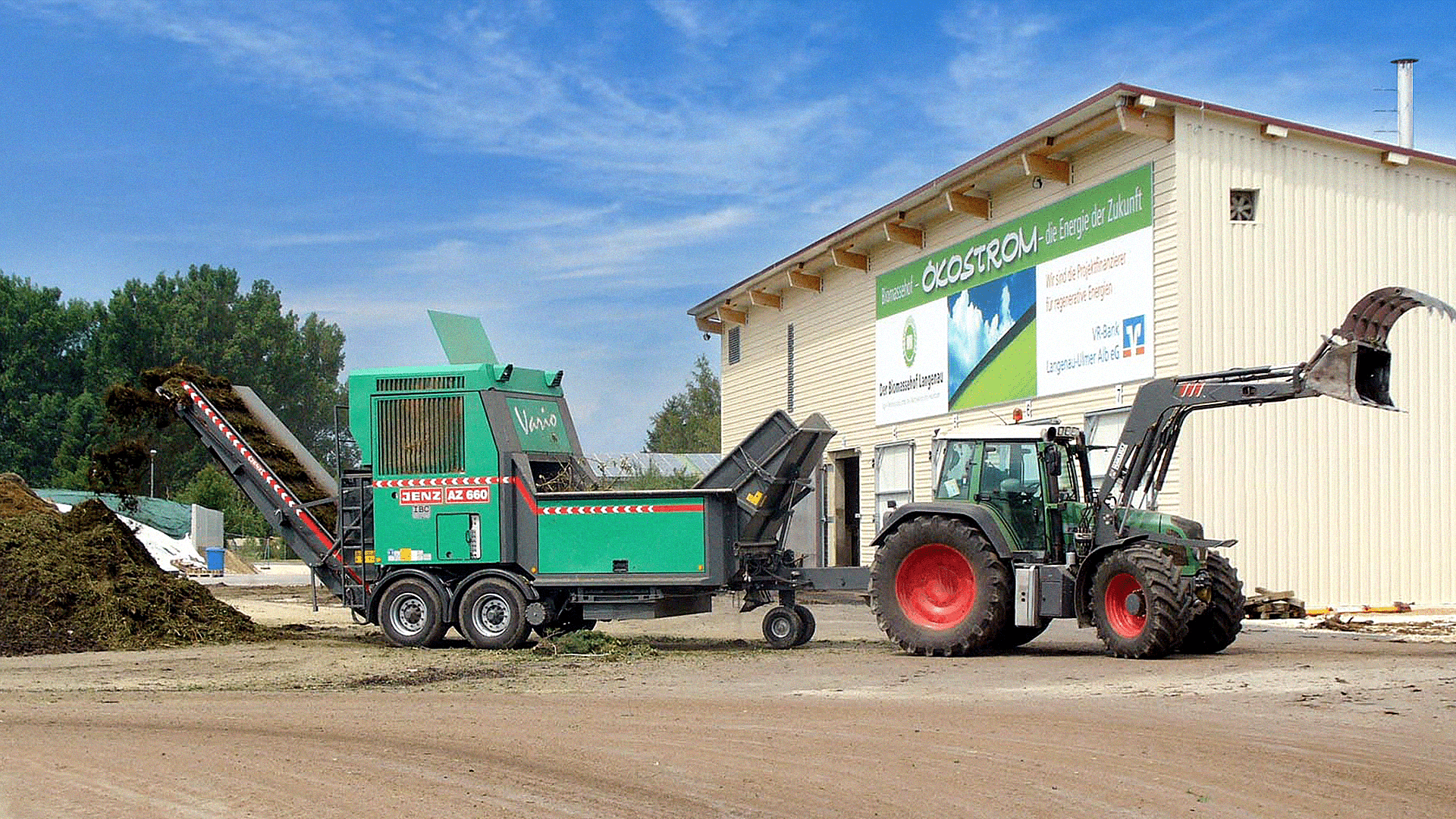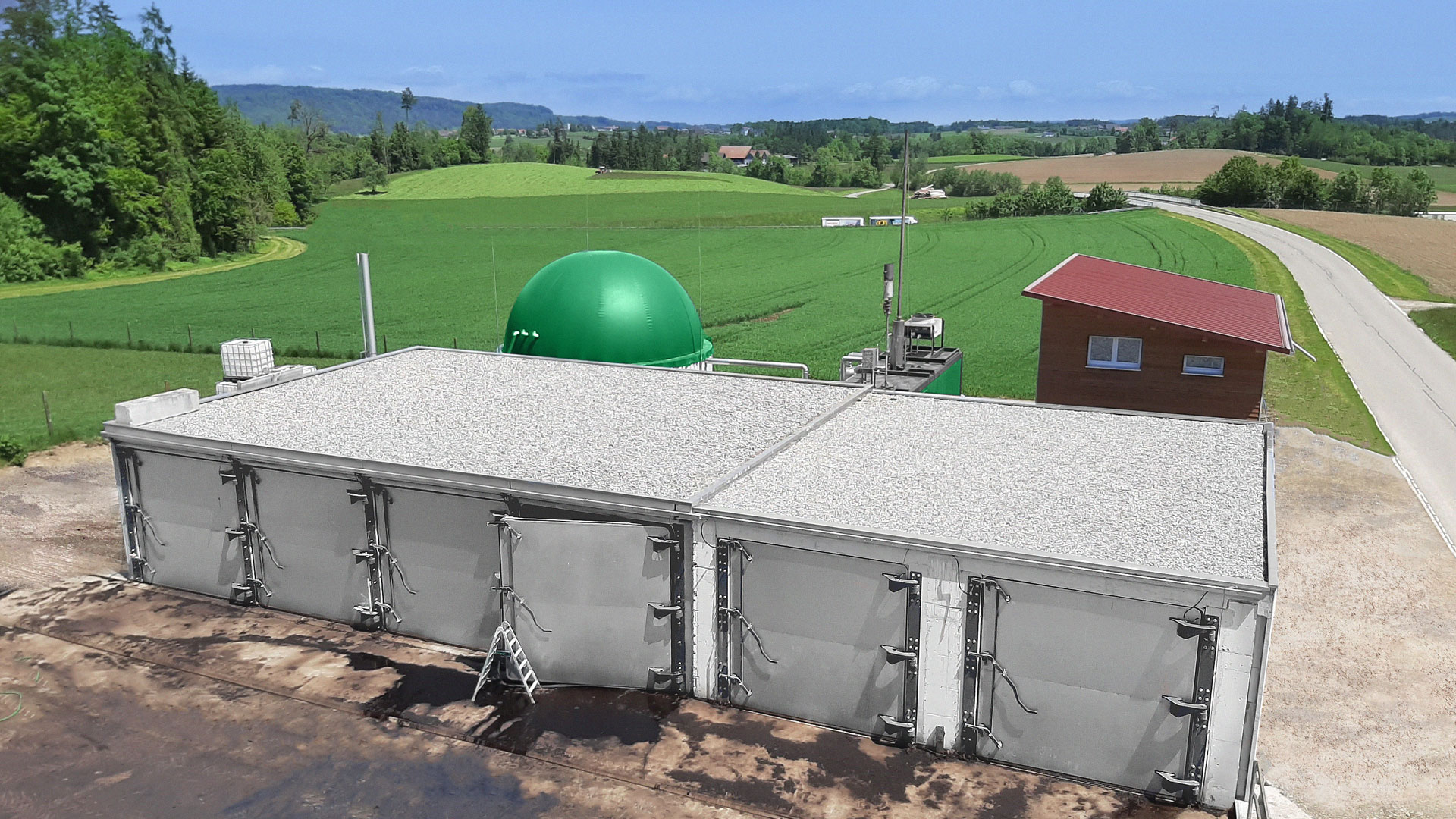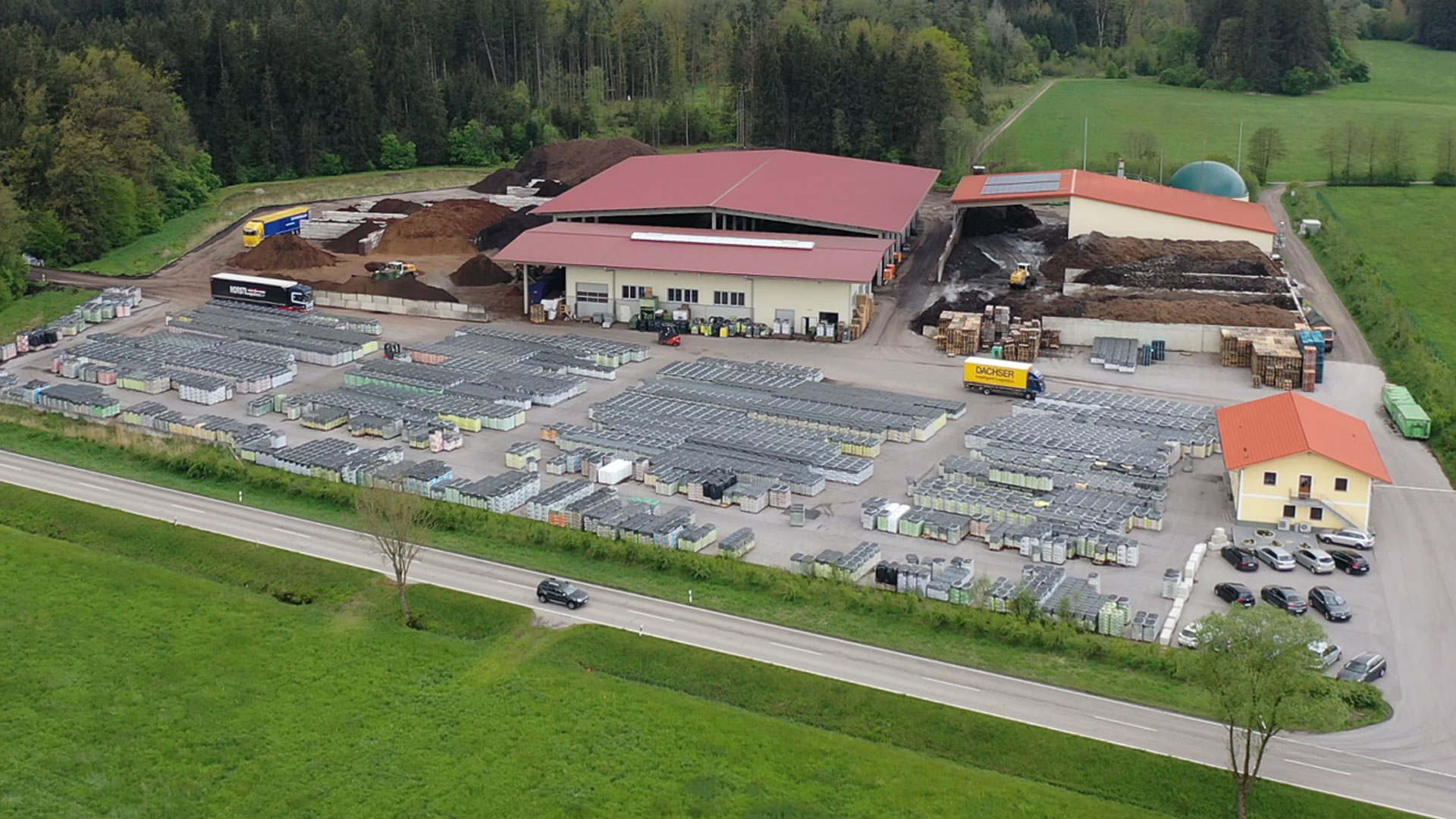
| Location: | Eiselfing, Germany |
|---|---|
| Biomass: | Biowaste, green waste |
| Quantity: | 10.000 t/a |
| Biogas: | 1.200.000 Nm3/a |
| Performance: | 290 kW el. Ø |
BIOGAS PLANT & COMPOSTING SITE
Eiselfing, Germany
In Eiselfing, Bavaria, there has been a remarkable development in the recycling of biowaste. Since the separate collection of biowastes became mandatory for private households, the amount of biowaste collected has risen continuously.
Waste statistics in Germany from 2017 show that around 4.35 million tons of biowaste were processed in special treatment plants. However, a large proportion of this waste is merely composted, leaving the energy it contains unused. This trend makes it clear that more efficient use of biowaste in the sense of cascading use is necessary.
Prime example for Bavaria
At the Eiselfing Energy Park, biogas is produced from biowaste, landscape maintenance material, green waste and horse manure. Solid matter fermentation converts these substrates into a significant amount of electricity, sufficient to supply around 670 households, and a similar amount of heat.
The plant uses substrates from a radius of 30 kilometers, which underlines the integration of local resources and sustainable raw material extraction. The waste heat from the combined heat and power plants is currently mainly used for substrate drying.
A key aspect of the plant is the further processing of fermentation residues into compost and soil for the retail sector. Coupled with revenue from the EEG and the sale of growing media, this ensures that the plant operates successfully in economic terms.
Development of the biogas plant since 2011
The biogas plant went into operation in 2011 under the management of Michael Maier. Originally, mainly horse manure and green waste were processed. After eight years, the switch to biowaste was made without any changes to the plant technology being necessary.
The biogas plant in Eiselfing impressively demonstrates how municipal biowaste can be used efficiently. It not only contributes to the local energy supply, but also makes a significant contribution to CO₂ savings. With an annual production that supplies around 650 households with electricity and saves 1,850 tons of CO₂ at the same time, it is a shining example of environmentally friendly energy generation and waste utilization.
